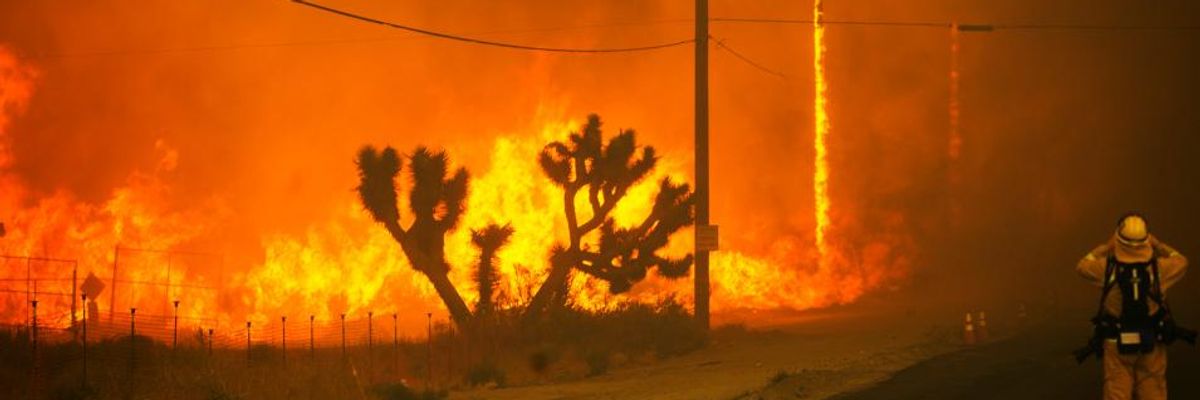A scathing United Nations report released Tuesday warned that the world is hurtling toward a "climate apartheid scenario" in which the wealthiest members of society will be able to buy their way to safety while hundreds of millions suffer from environmental catastrophe.
"Economic prosperity and environmental sustainability are fully compatible but require decoupling economic well-being and poverty reduction from fossil fuel emissions."
--Philip Alston, U.N. special rapporteur
"Perversely, while people in poverty are responsible for just a fraction of global emissions, they will bear the brunt of climate change, and have the least capacity to protect themselves," U.N. special rapporteur Philip Alston, author of the new report, said in a statement.
Even if warming is held to 1.5degC by the end of the century, Alston said, "tens of millions will be impoverished, leading to widespread displacement and hunger."
Alston's 21-page report (pdf), which will be presented to the U.N. human rights council on Friday, predicts that millions of people across the planet could "face malnutrition due to devastating drought" over the next few decades due to the climate crisis, "and many more will have to choose between starvation and migration."
To prevent this nightmare scenario, the report calls for "a fundamental shift in the global economy" aimed at protecting vulnerable populations from climate impacts while dramatically slashing carbon emissions.
"Maintaining the current course is a recipe for economic catastrophe," Alston said in a statement. "Economic prosperity and environmental sustainability are fully compatible but require decoupling economic well-being and poverty reduction from fossil fuel emissions."
"Climate change... could push more than 120 million more people into poverty by 2030 and will have the most severe impact in poor countries, regions, and the places poor people live and work," Alston added. "We risk a 'climate apartheid' scenario where the wealthy pay to escape overheating, hunger, and conflict while the rest of the world is left to suffer."
The report specifically calls for a "robust social safety net and a well-managed transition to a green economy" and points to growing support for the Green New Deal in the United States and other nations as a positive development.
But there is alarming evidence that many countries are moving in the wrong direction. The report highlights U.S. President Donald Trump's efforts to roll back environmental regulations and Brazilian President Jair Bolsonaro's deforestation in the Amazon as two prominent examples.
"Time is running out to limit global warming," the report warns, "and states are failing to meet even their current inadequate commitments."
Alston closes his report with a harsh assessment of U.N. human rights bodies, which he accuses of pushing "forms of incremental managerialism and proceduralism which are entirely disproportionate to the urgency and magnitude of the threat."
"Ticking boxes," the report states, "will not save humanity or the planet from impending disaster."

